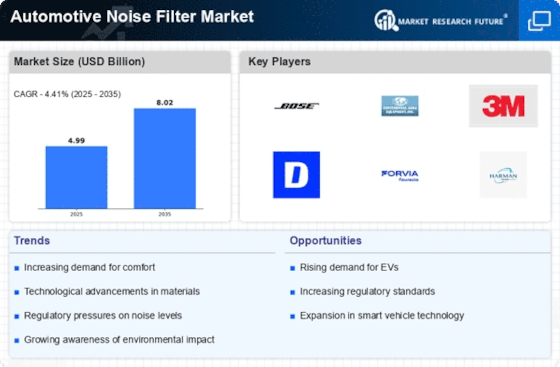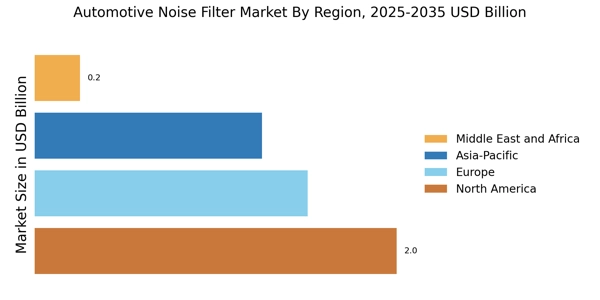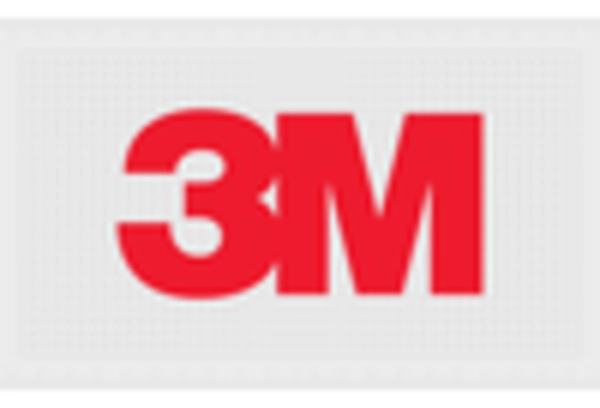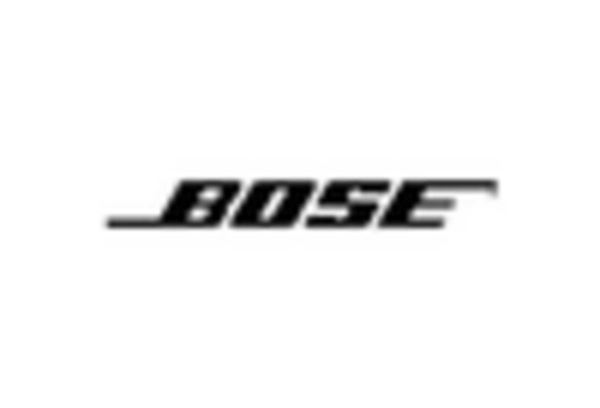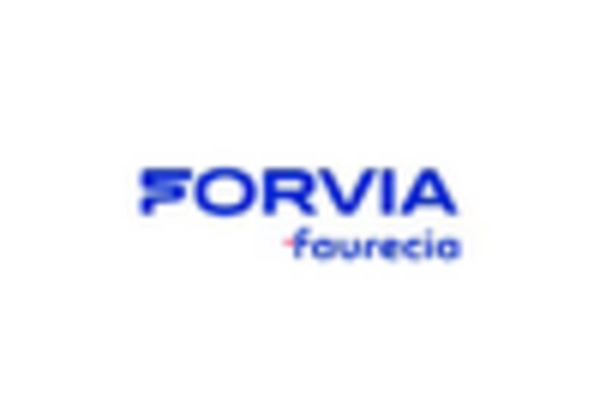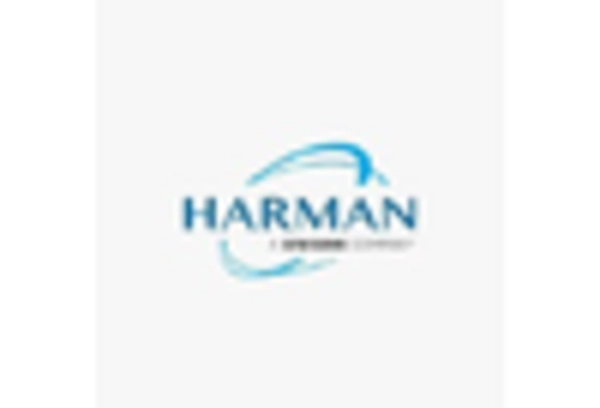Growing Consumer Demand for Comfort
The Automotive Noise Filter Market is experiencing a notable increase in consumer demand for enhanced comfort within vehicles. As consumers become more discerning regarding their driving experience, the need for effective noise reduction solutions has intensified. This trend is particularly evident in premium and luxury vehicle segments, where manufacturers are investing in advanced noise filtering technologies to meet customer expectations. According to recent data, the market for automotive noise filters is projected to grow at a compound annual growth rate of approximately 5.2% over the next five years. This growth is driven by the desire for quieter cabins, which not only improves comfort but also enhances overall driving satisfaction. Consequently, automotive manufacturers are prioritizing the integration of sophisticated noise filter systems to cater to this evolving consumer preference.
Rise of Electric and Hybrid Vehicles
The rise of electric and hybrid vehicles is significantly impacting the Automotive Noise Filter Market. Unlike traditional internal combustion engine vehicles, electric and hybrid models often operate more quietly, which can lead to an increased perception of road noise and other external sounds. Consequently, there is a growing need for effective noise filtering solutions to enhance the driving experience in these vehicles. Market analysis indicates that the electric vehicle segment is expected to grow at a rate of approximately 7% annually, creating substantial opportunities for noise filter manufacturers. As automakers focus on delivering a serene driving environment, the integration of advanced noise filtering technologies becomes crucial, thereby driving the demand within the automotive noise filter market.
Regulatory Pressure for Noise Control
The Automotive Noise Filter Market is increasingly influenced by regulatory pressures aimed at controlling vehicle noise emissions. Governments worldwide are implementing stringent noise regulations to address environmental concerns and improve public health. These regulations compel automotive manufacturers to adopt effective noise reduction technologies in their vehicles. As a result, the demand for automotive noise filters is expected to rise, as manufacturers seek compliance with these evolving standards. Recent data suggests that regions with stricter noise regulations are witnessing a faster adoption of noise filtering solutions, thereby propelling market growth. This regulatory landscape not only drives innovation in noise control technologies but also encourages manufacturers to invest in research and development, further enhancing the automotive noise filter market.
Technological Advancements in Noise Reduction
Technological advancements play a pivotal role in shaping the Automotive Noise Filter Market. Innovations in materials and engineering techniques have led to the development of more effective noise filtering solutions. For instance, the introduction of lightweight composite materials and advanced sound-absorbing foams has significantly improved the performance of noise filters. These advancements not only enhance the acoustic comfort of vehicles but also contribute to weight reduction, which is crucial for fuel efficiency. Market data indicates that the adoption of such technologies is expected to increase, with a projected market growth of around 6% annually. As manufacturers strive to remain competitive, the integration of cutting-edge noise reduction technologies becomes essential, thereby driving the overall growth of the automotive noise filter market.
Increased Focus on Vehicle Aesthetics and Design
The Automotive Noise Filter Market is also influenced by an increased focus on vehicle aesthetics and design. Modern consumers are not only concerned with performance but also with the overall look and feel of their vehicles. As a result, manufacturers are integrating noise filtering solutions that complement the vehicle's design while providing effective sound insulation. This trend is particularly prominent in the luxury and high-end vehicle segments, where aesthetics play a critical role in consumer purchasing decisions. Market data suggests that the demand for aesthetically pleasing noise filter solutions is on the rise, with a projected growth rate of around 5.5% in the coming years. This focus on design and aesthetics is likely to drive innovation in the automotive noise filter market, as manufacturers seek to balance functionality with visual appeal.


